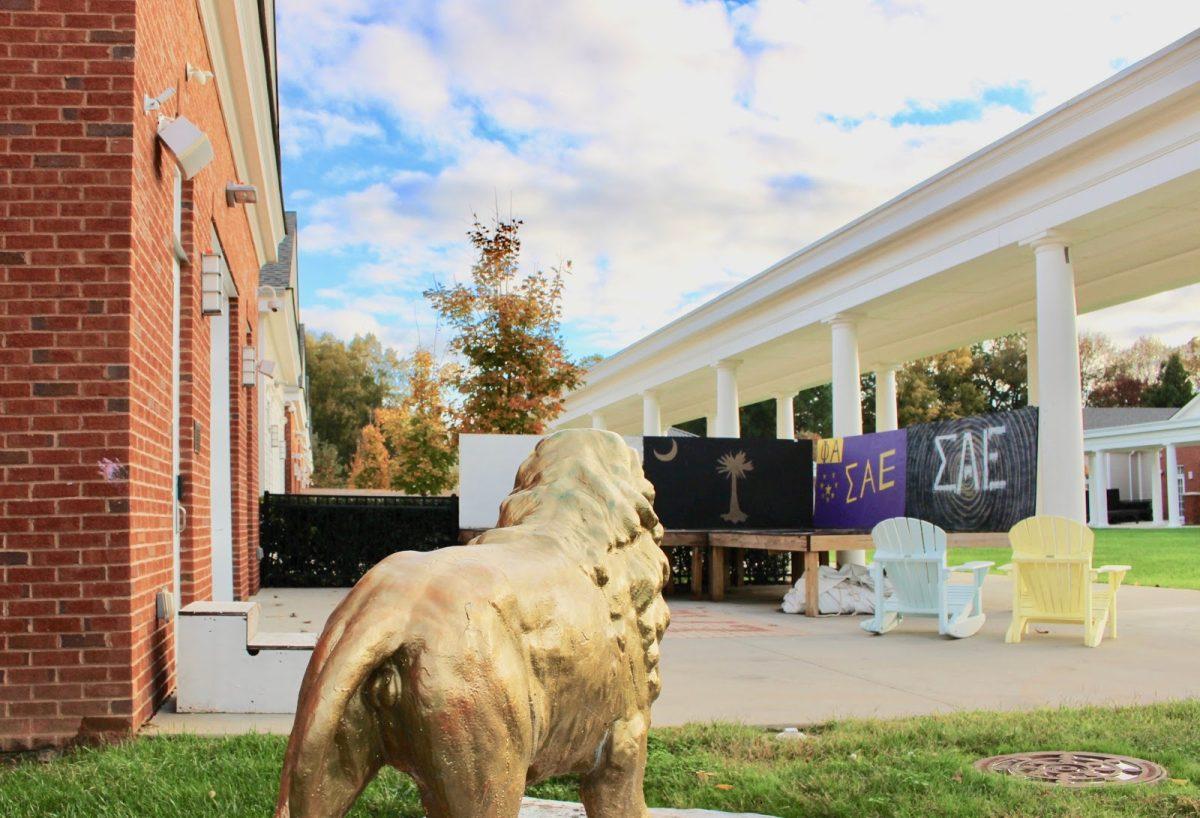Fraternities wrestle with administration over stages
When the idea for the current Greek Village was born and Wofford was making decisions between corinthian, doric and ionic columns for each house, there was one structure that they did not anticipate: conglomerations of two-by-fours and plywood springing up in the age of ‘girls on elevated surfaces.’
On Oct. 21, fraternities were told that they had two weeks to remove their stages and a construction dumpster was placed behind the Greek Village. Lack of uniformity, poor construction and aesthetics have long been a concern for administrators in regards to the stages and their added effects on the houses.
Well over two weeks after fraternities were told to take their stages down, they still stand and the issue is under discussion. “Administration doesn’t like the way they look,” said IFC President Henry Kerfoot ‘21.
For most fraternities, the stages serve as a barrier between the sidewalk and the house’s patio. Not only do the structures protect them from the surveillance of Campus Safety officers, they also close off the patio to passersby, enabling them to place a sober party monitor at the entrance to judge a guest’s state of being upon entrance.
Recently, in discussion with Facilities, administrators were informed that the staging in its current placement may hinder students/ guests from escaping during a fire. “The issue regarding placement and potential fire code issues,” Hammett said, “are more recent concerns.”
While there will be no financial compensation for the fraternities to remove their stages, other fixes have been proposed to the organizations. Dean Matthew Hammett, who noted that the stages have been an aesthetic issue for over two years, said that the college plans to pay for new fencing/privacy barriers at each house as well as the closure for the colonnade.
Currently there is no set solution to the issue, but Hammett added that Facilities is researching options for enclosing each house. After further discussion between organizations and administration, IFC has asked that the stages be left until January.
“The stages, I think, will come down,” said Kerfoot. “I think the biggest thing is finding a way to work it into the lease agreement so this problem doesn’t happen again.”
Currently there are points in the 5-year lease agreements—which expire this year—that addresses modifications, renovations, alterations, and installations to the premise. “We expect that we will include a sentence or section that discusses the stages in the future lease,” said Hammett.
The fraternities stages are not the only Greek structures that have come into the spotlight as of late. The dilemma comes at a decisive inflection point for fraternities as the inclusivity of their social practices are being questioned across campus and across the country.
Many testimonies from the @blackatwofford Instagram page transpired in the Greek Village at the very organizations who are turning this semester’s attention towards securing their stages.
Dean Bigger has claimed that fraternities will not be allowed to reopen until they commit to a different system of entry for the houses, and Hammett has said that when the Greek Village opens, the organizations will have to turn in a guest list the week of the event that will be reviewed by the Office of Fraternity and Sorority Life.
“Coming into this semester,” Kerfoot said, “IFC wanted to combat racism and…we decided that we wanted to dedicate our efforts to this cause. Ad- ministration’s lack of thought for that, with throwing everyone off with the stages, has definitely made that a little bit more challenging.”
“I think fraternities,” Kerfoot said, “need to look back and say, ‘at this point pick your battles because what is more important to the future of our organizations: a stage or diversity and inclusion?”




























